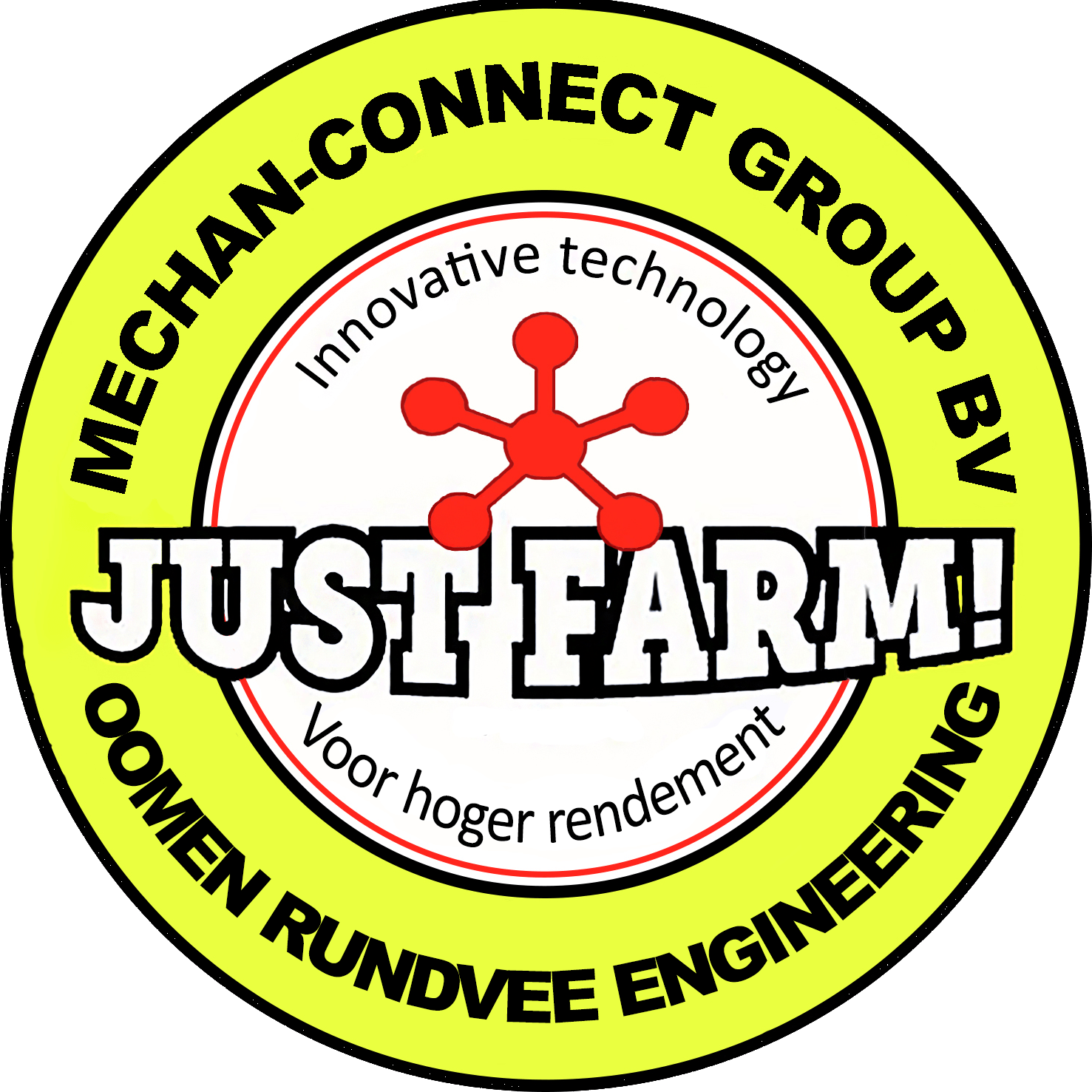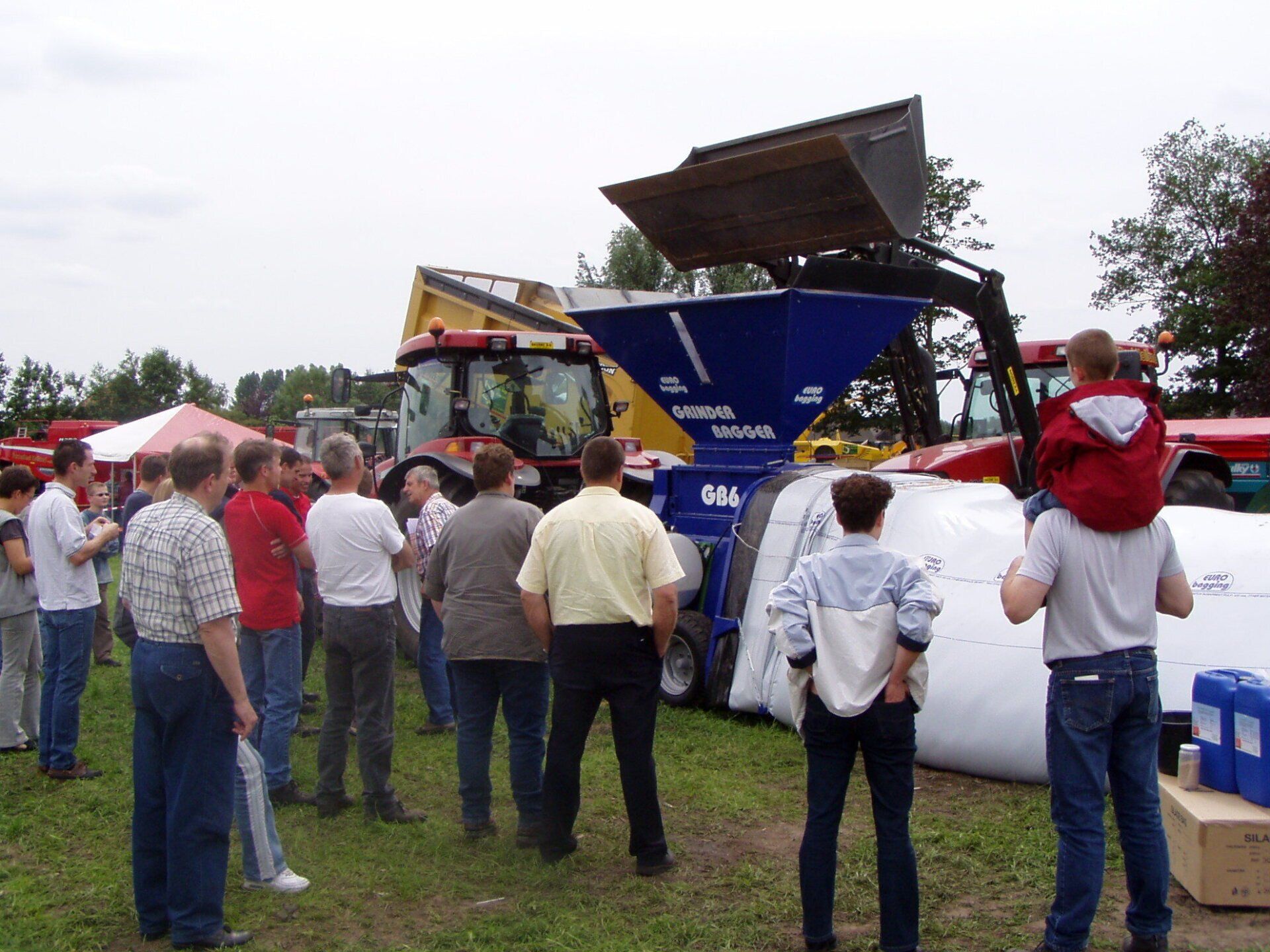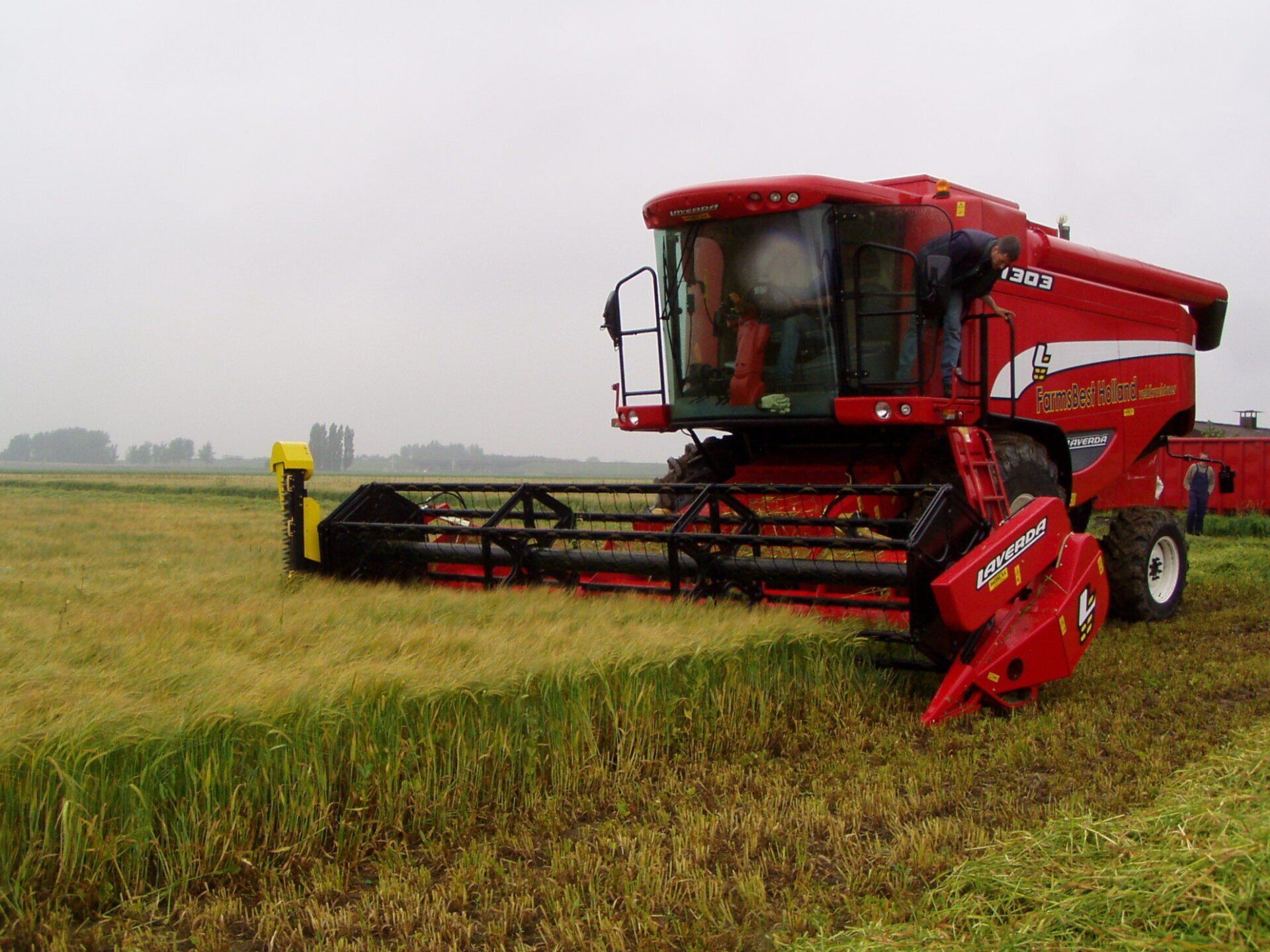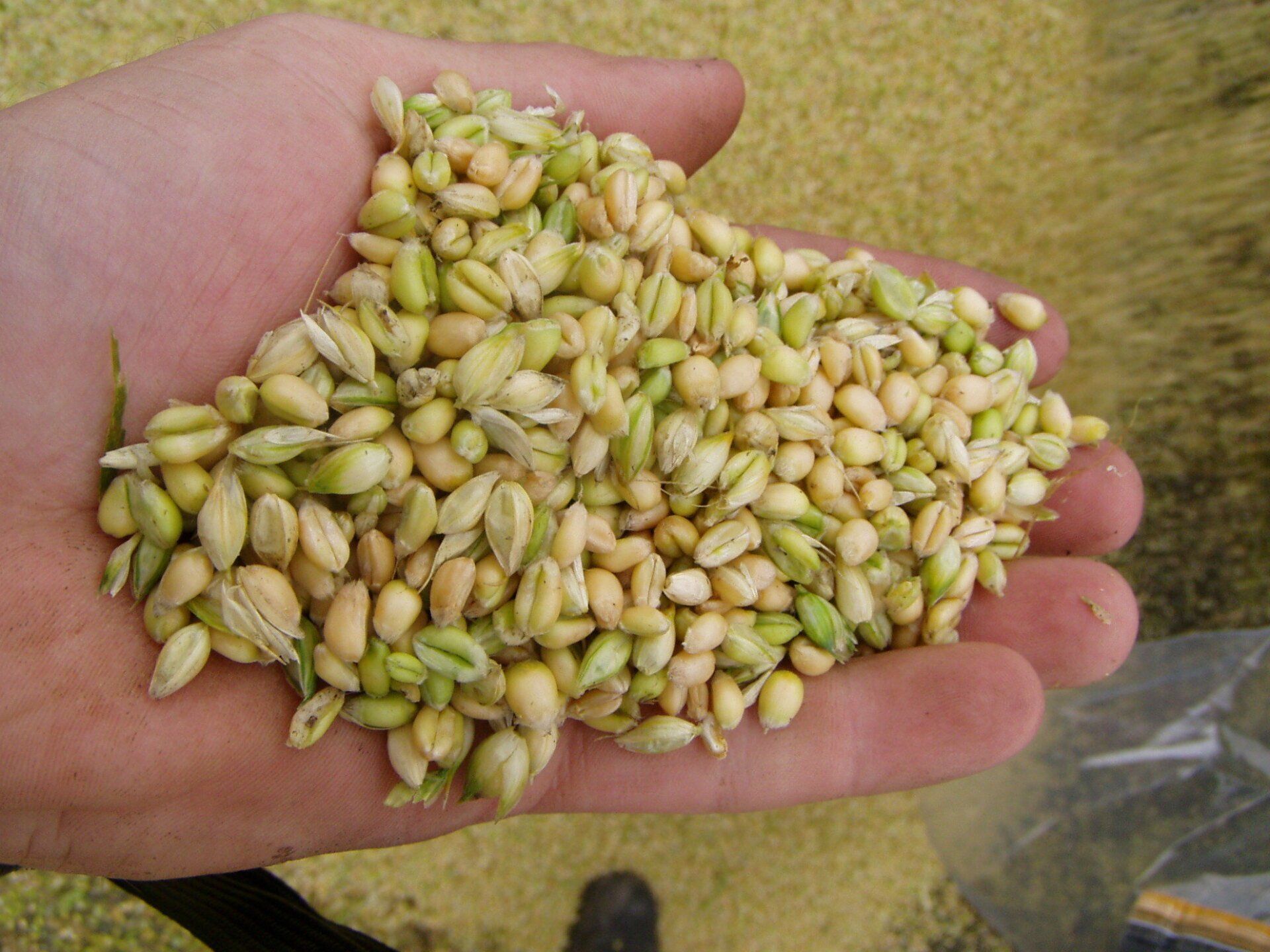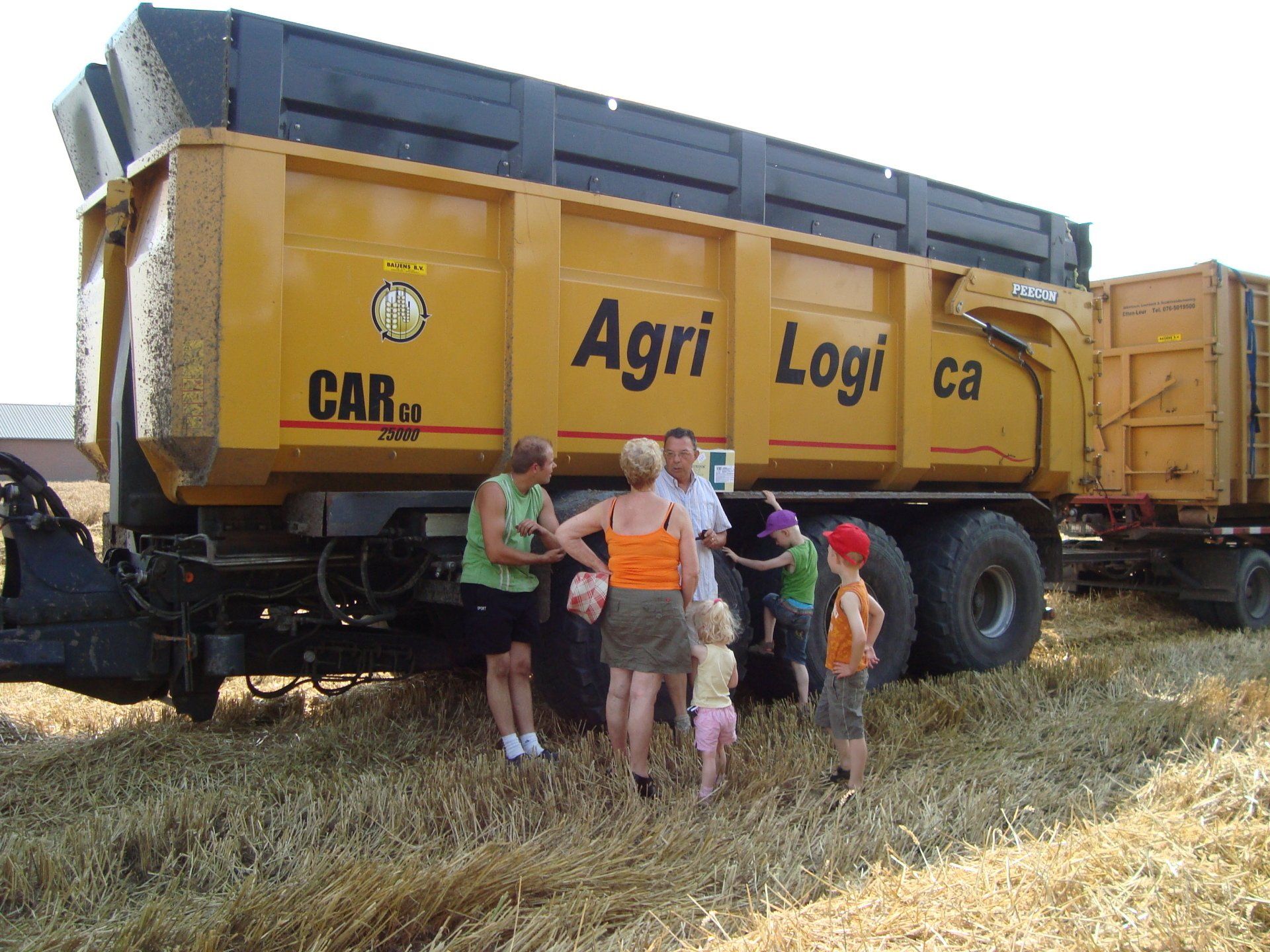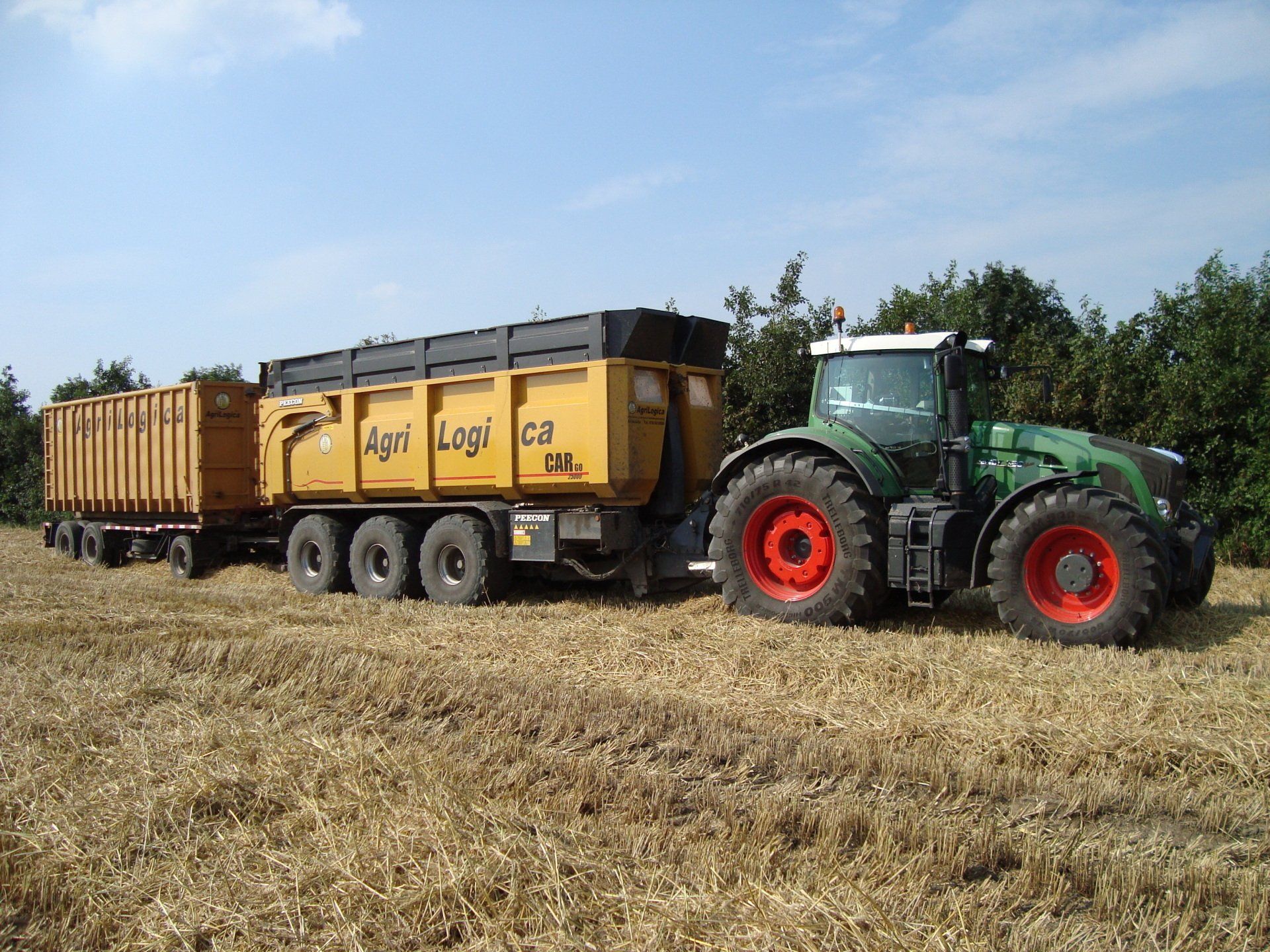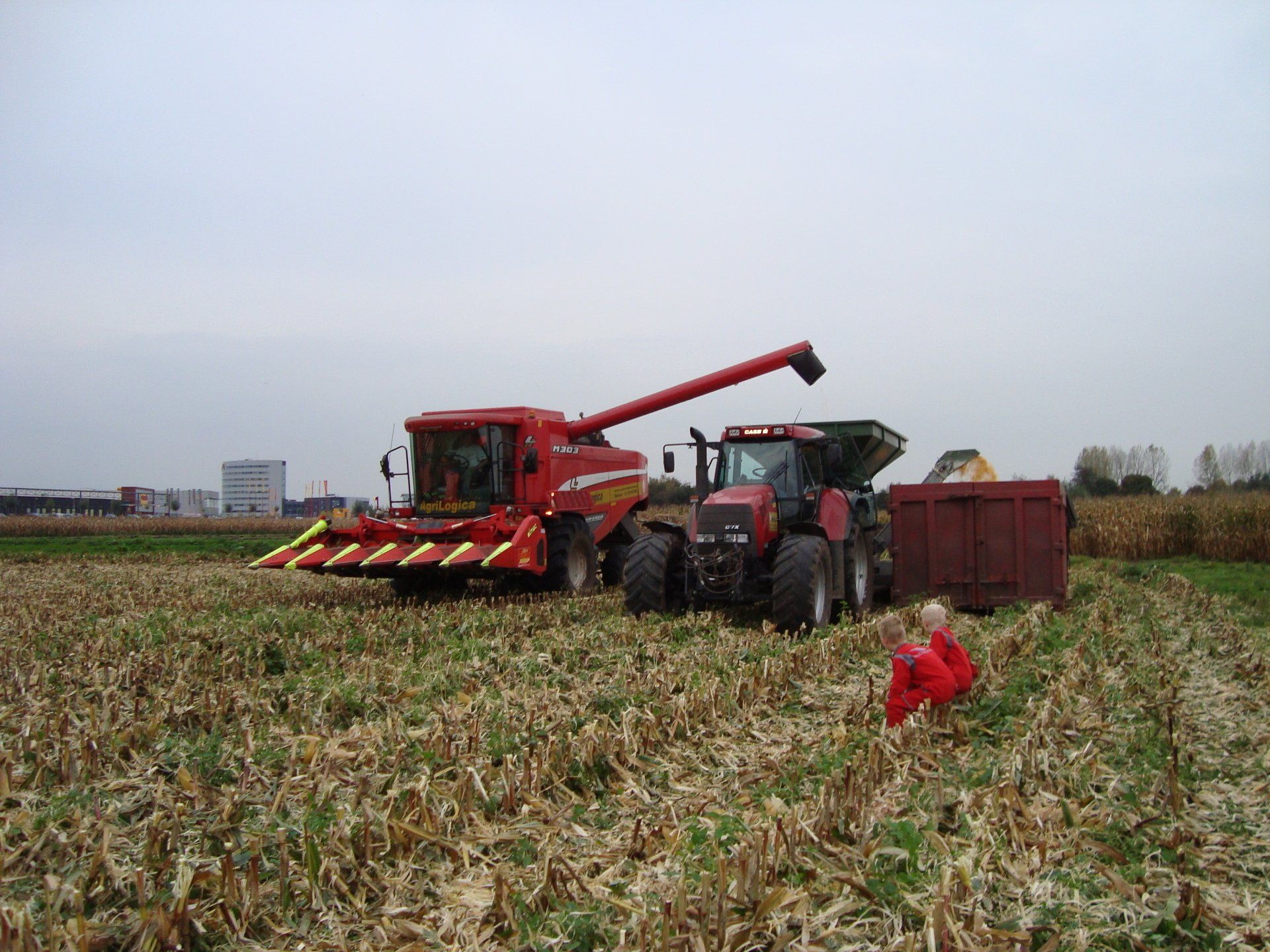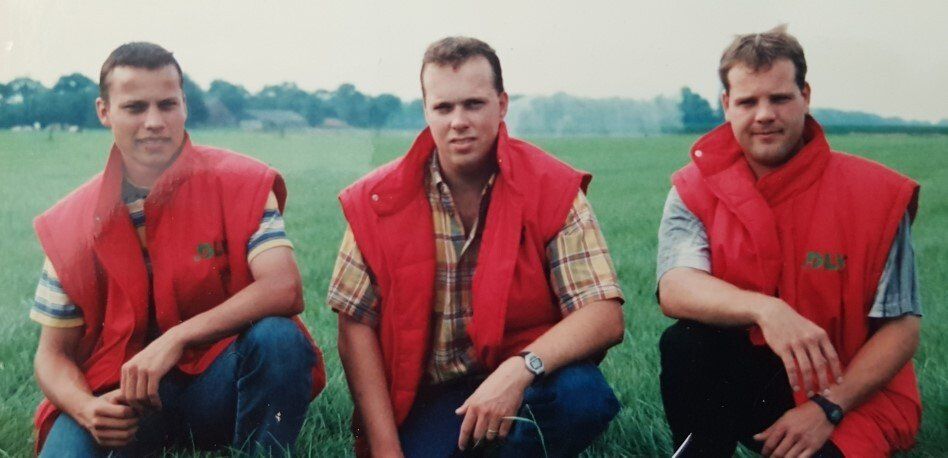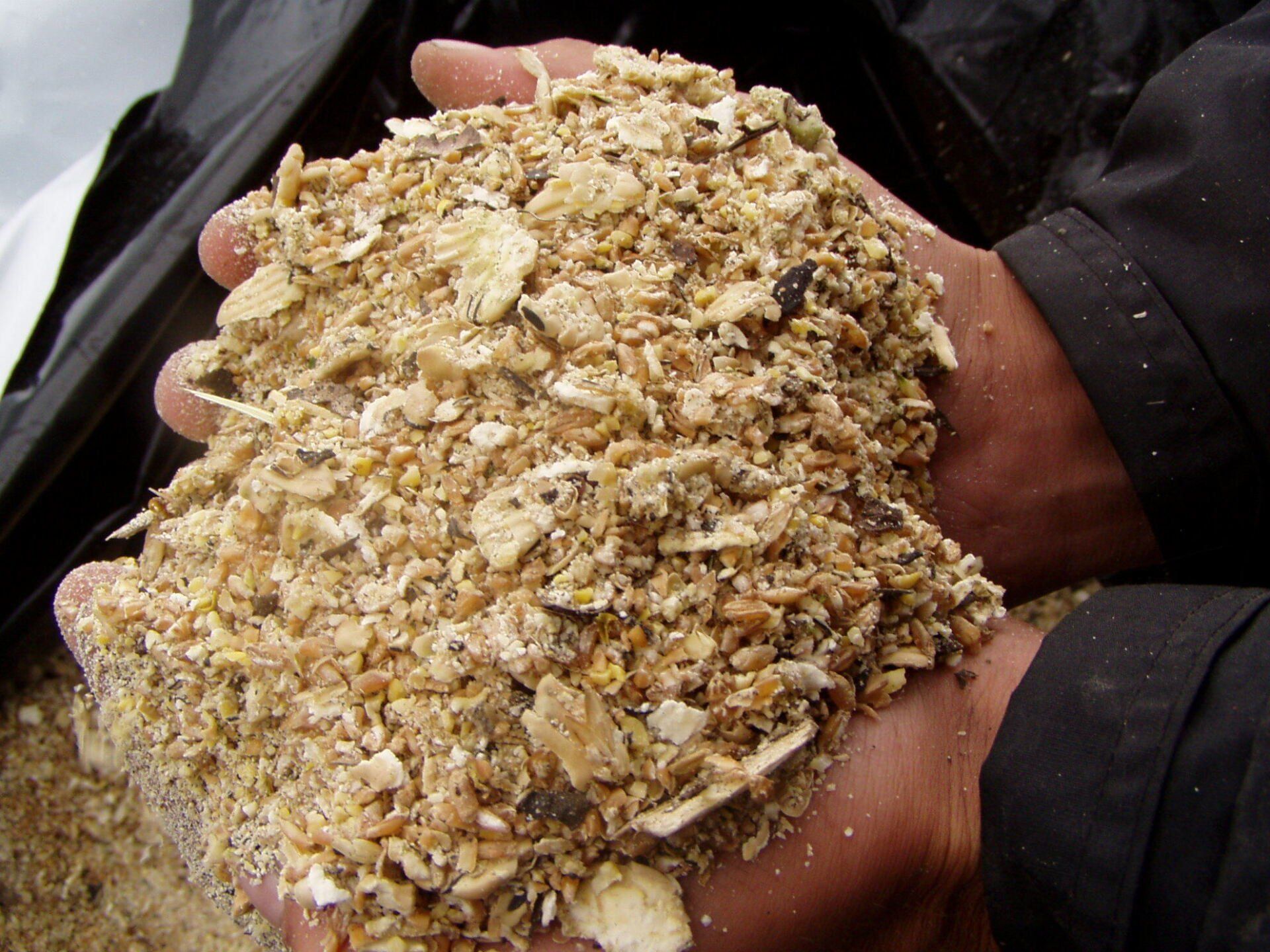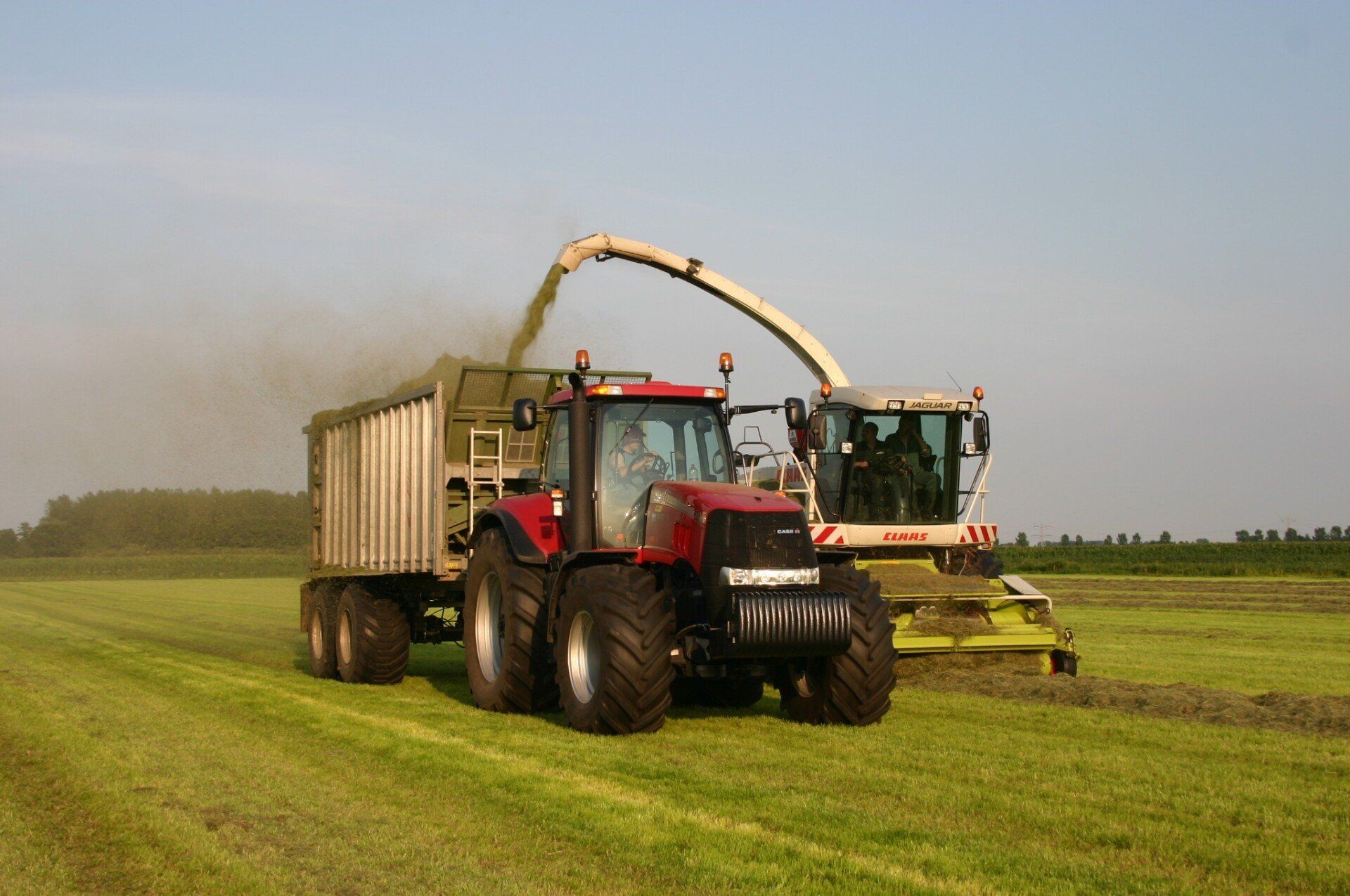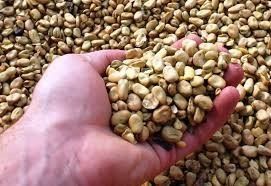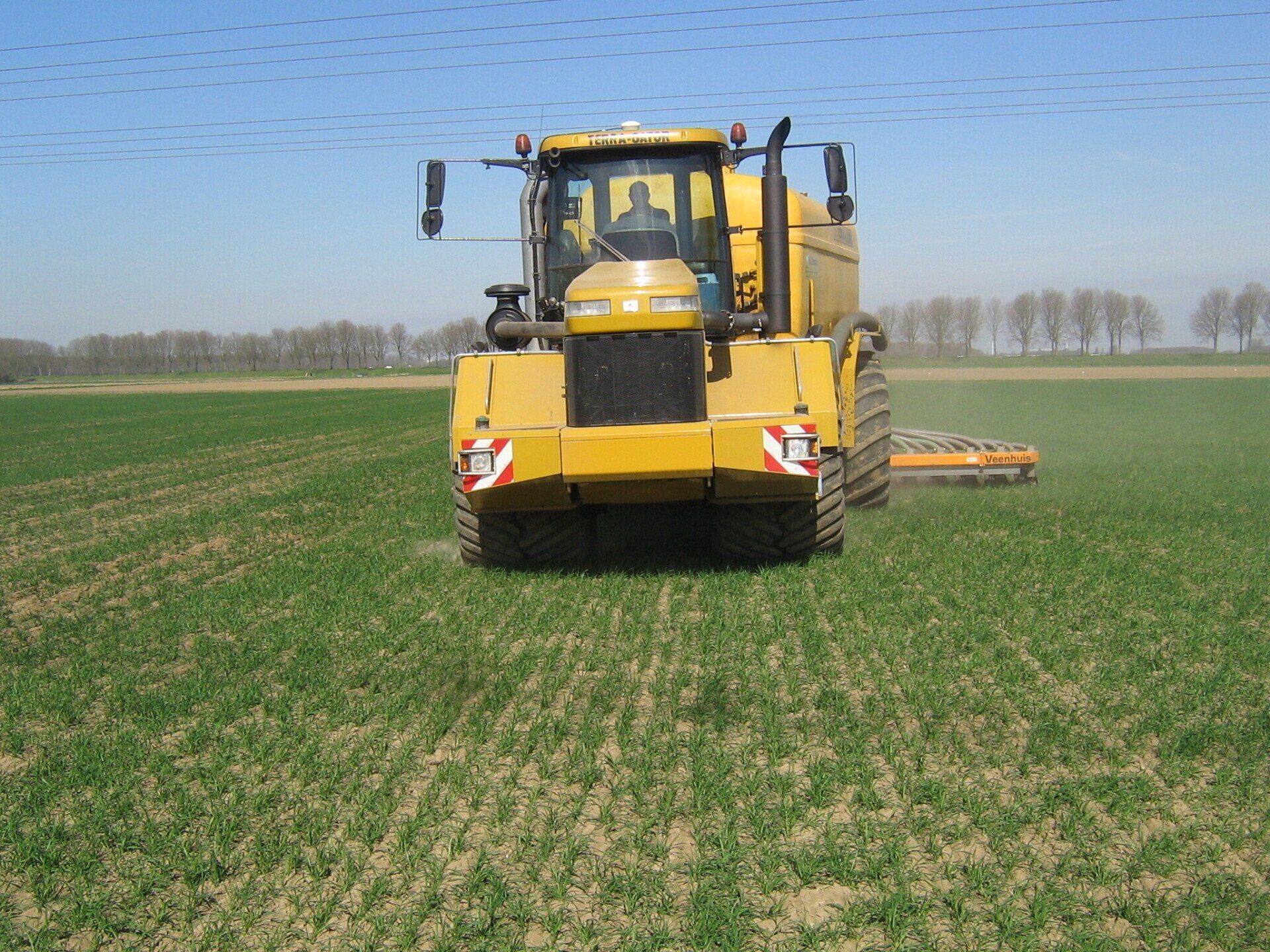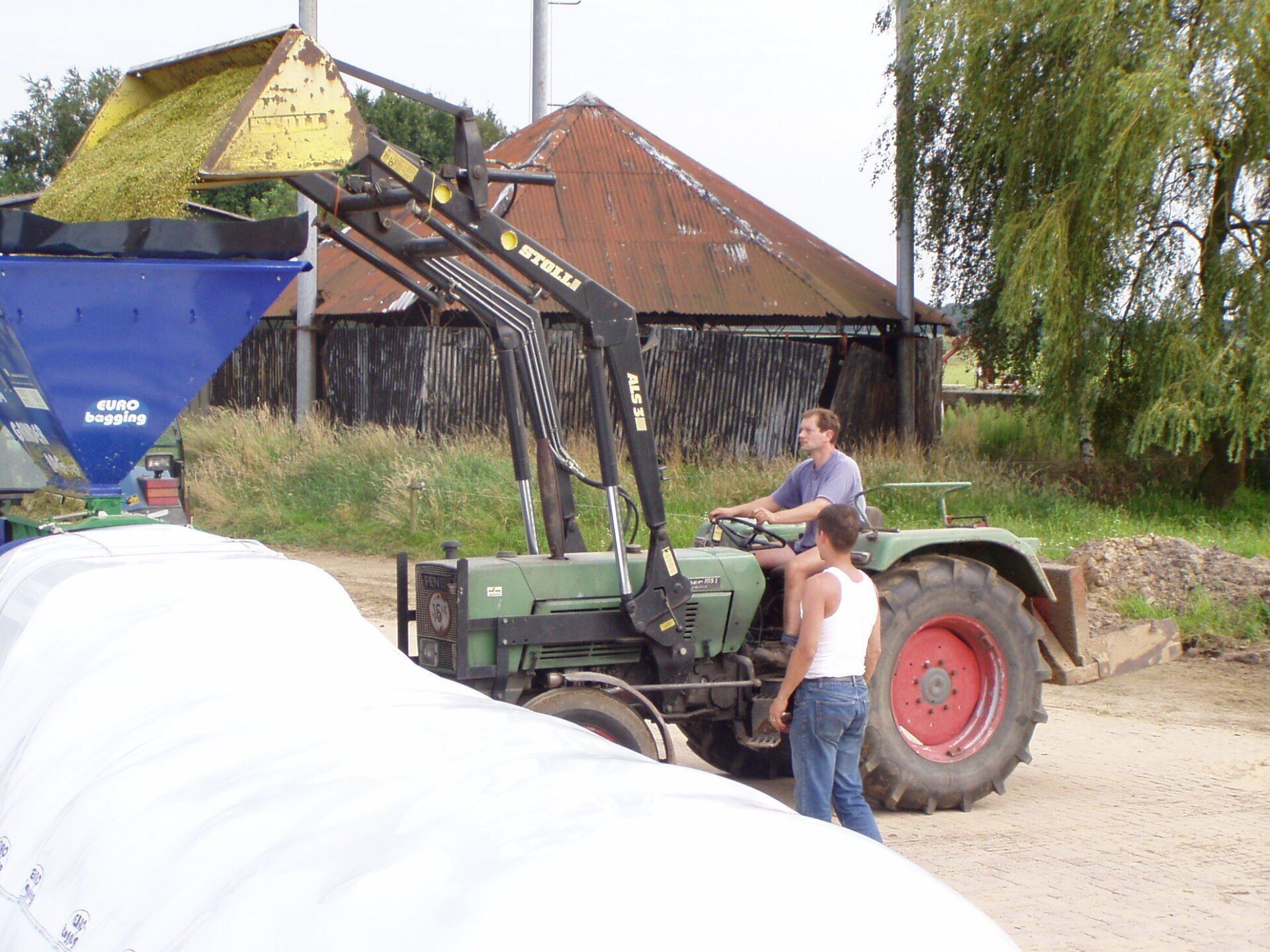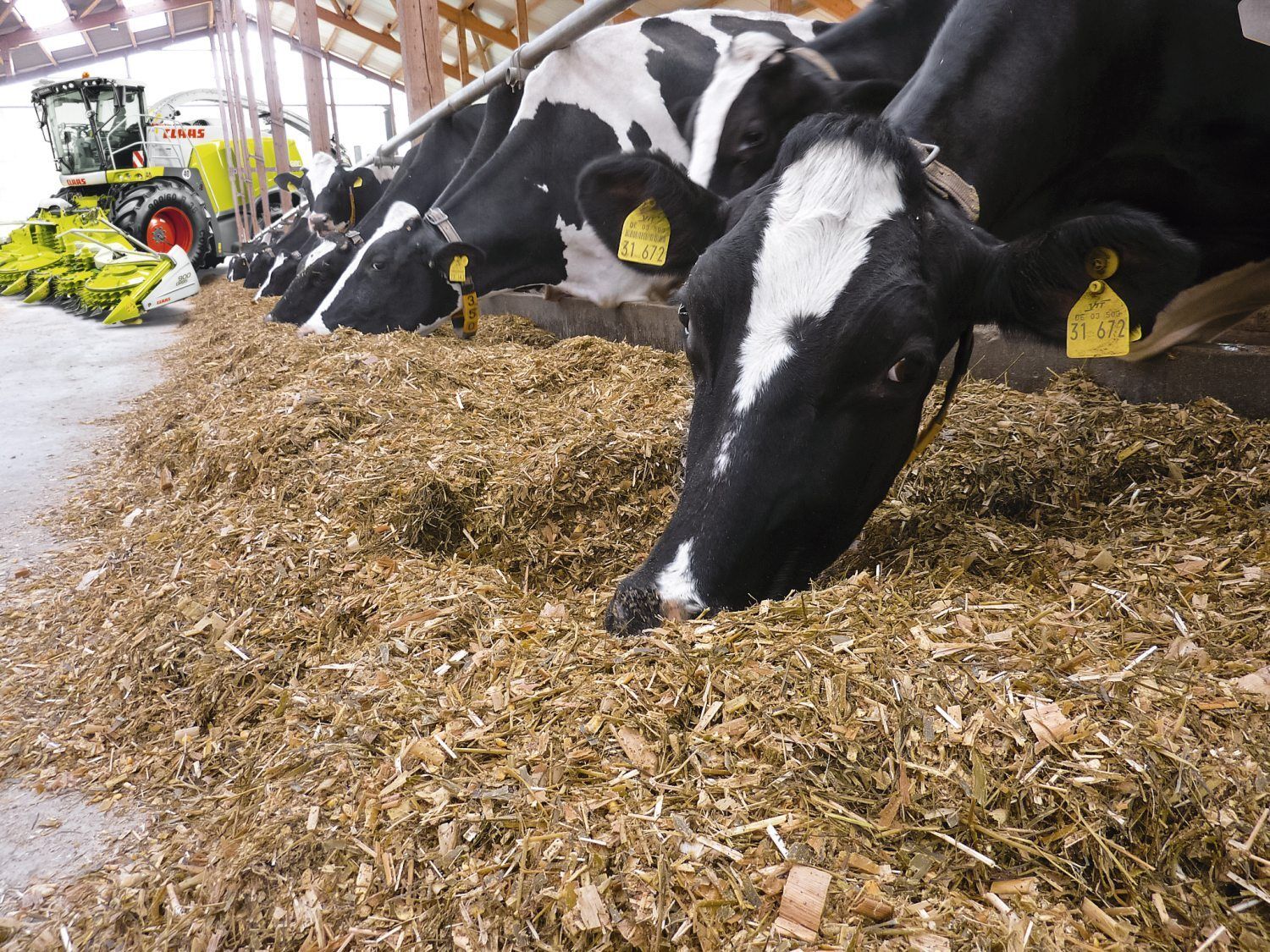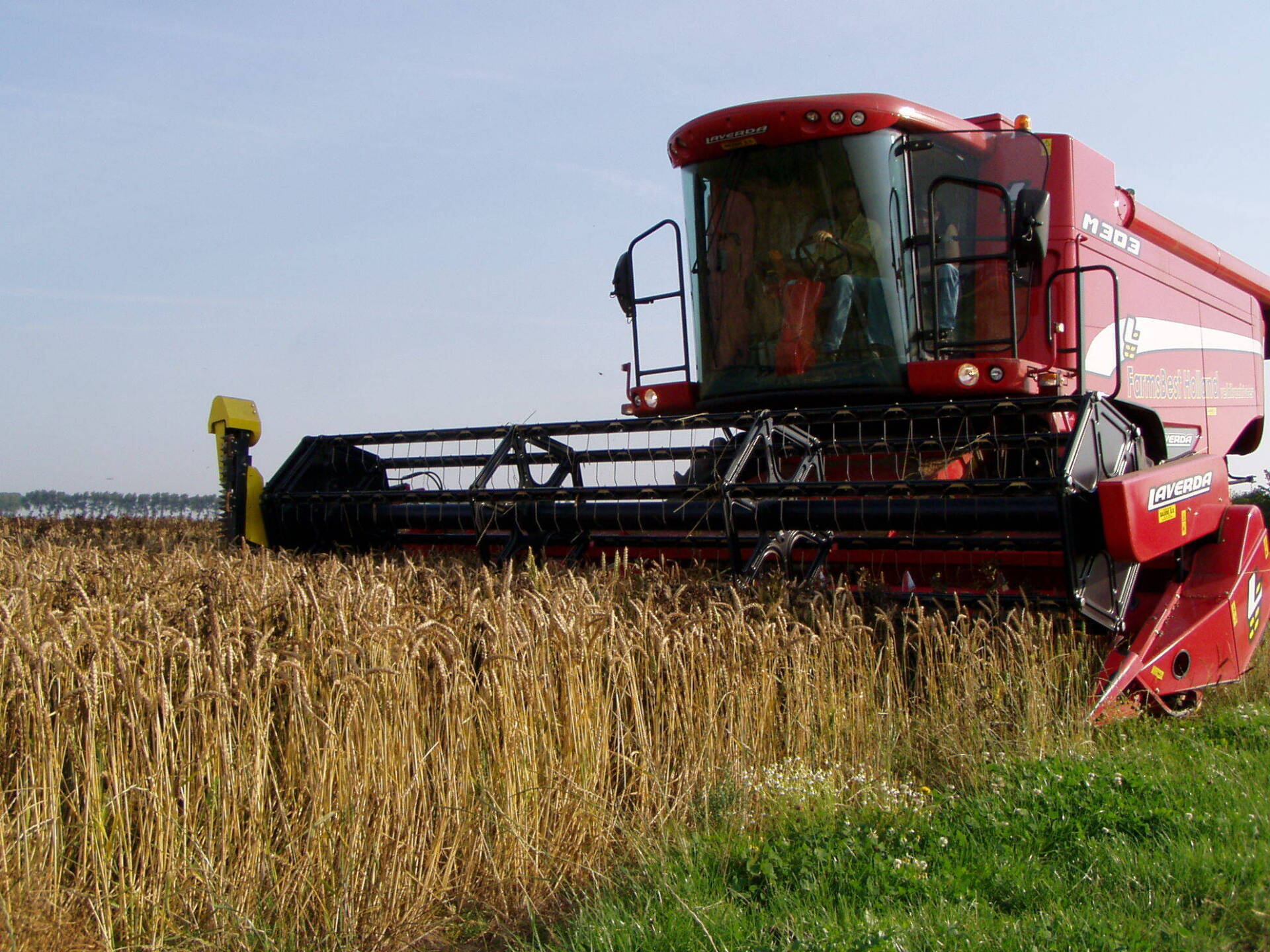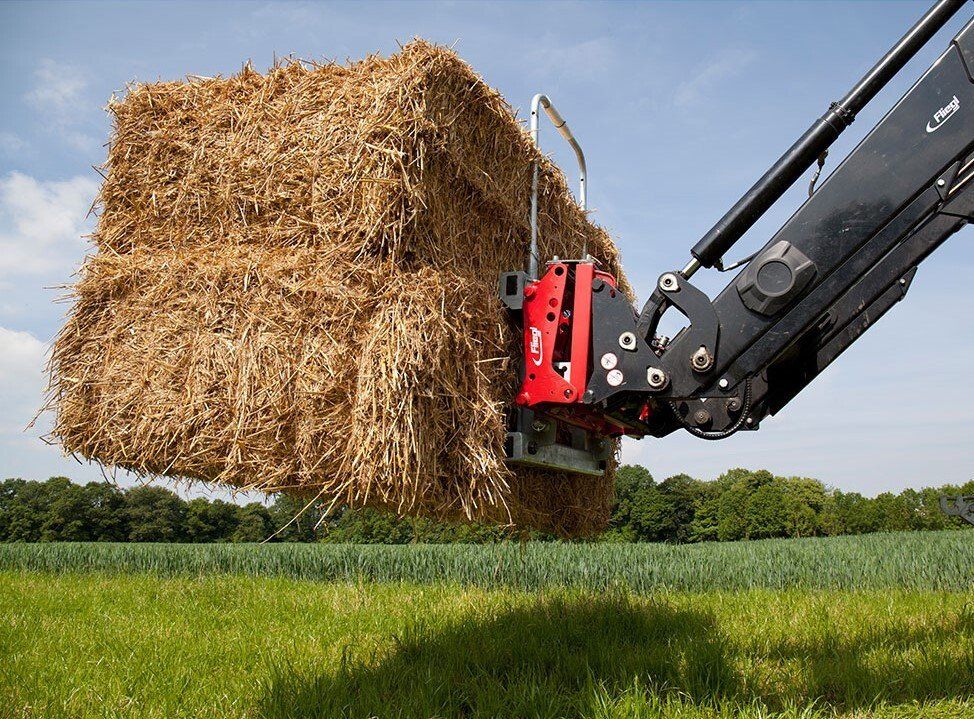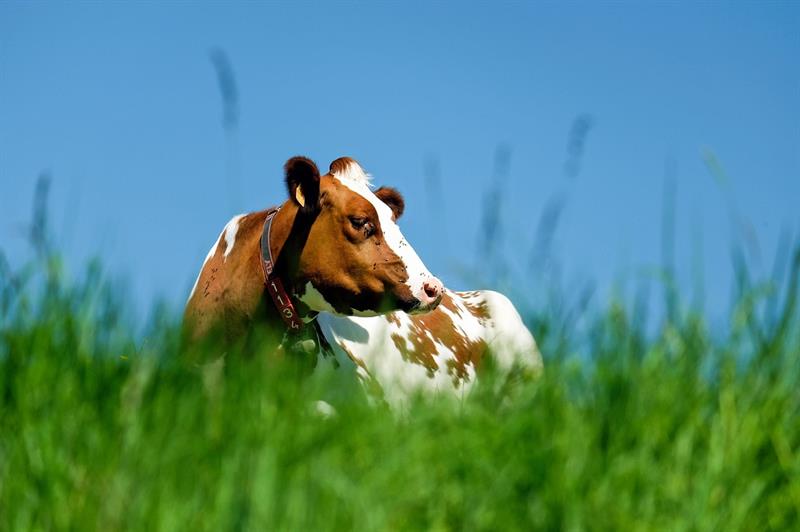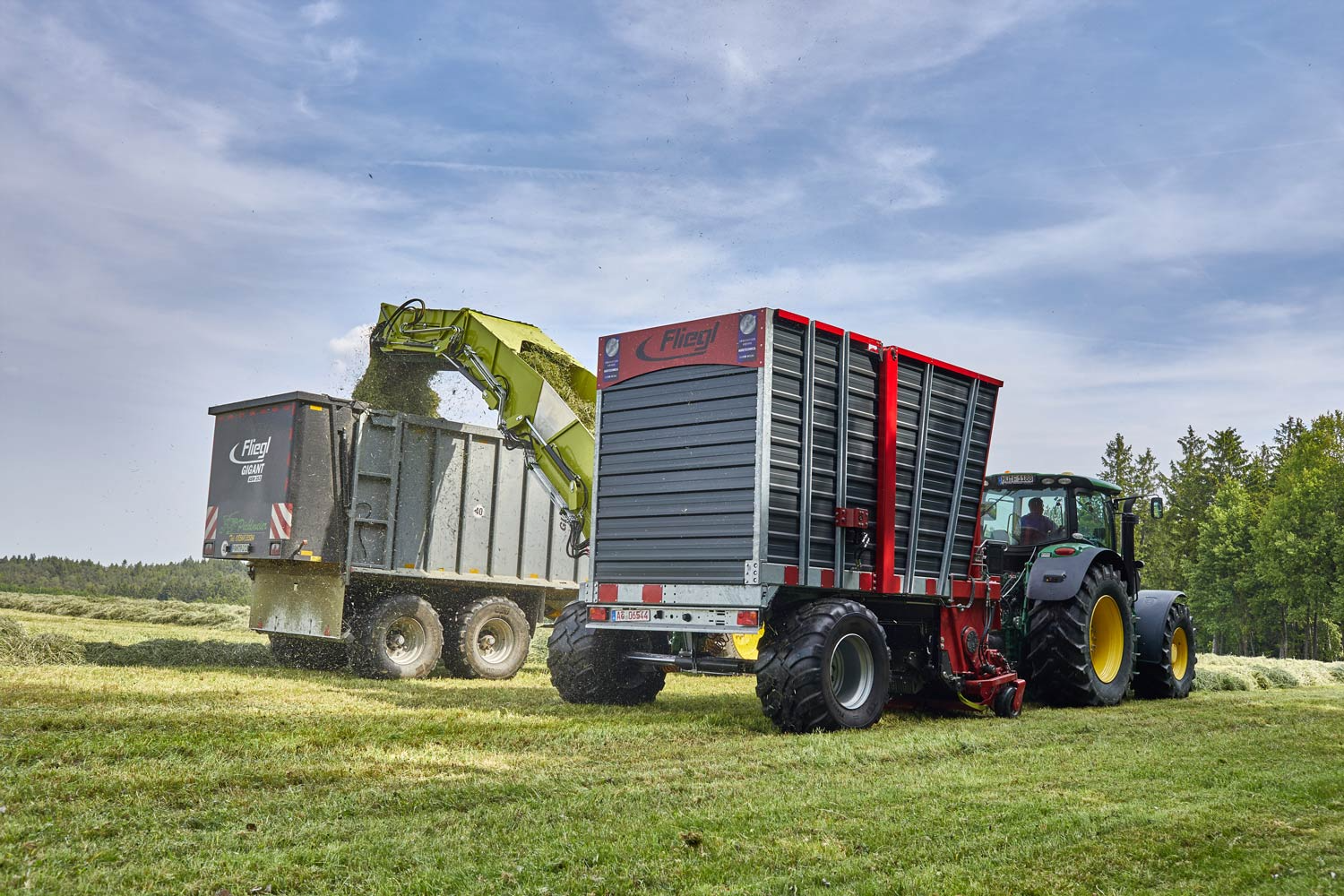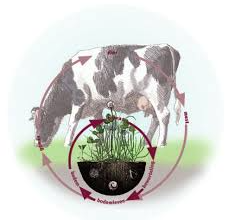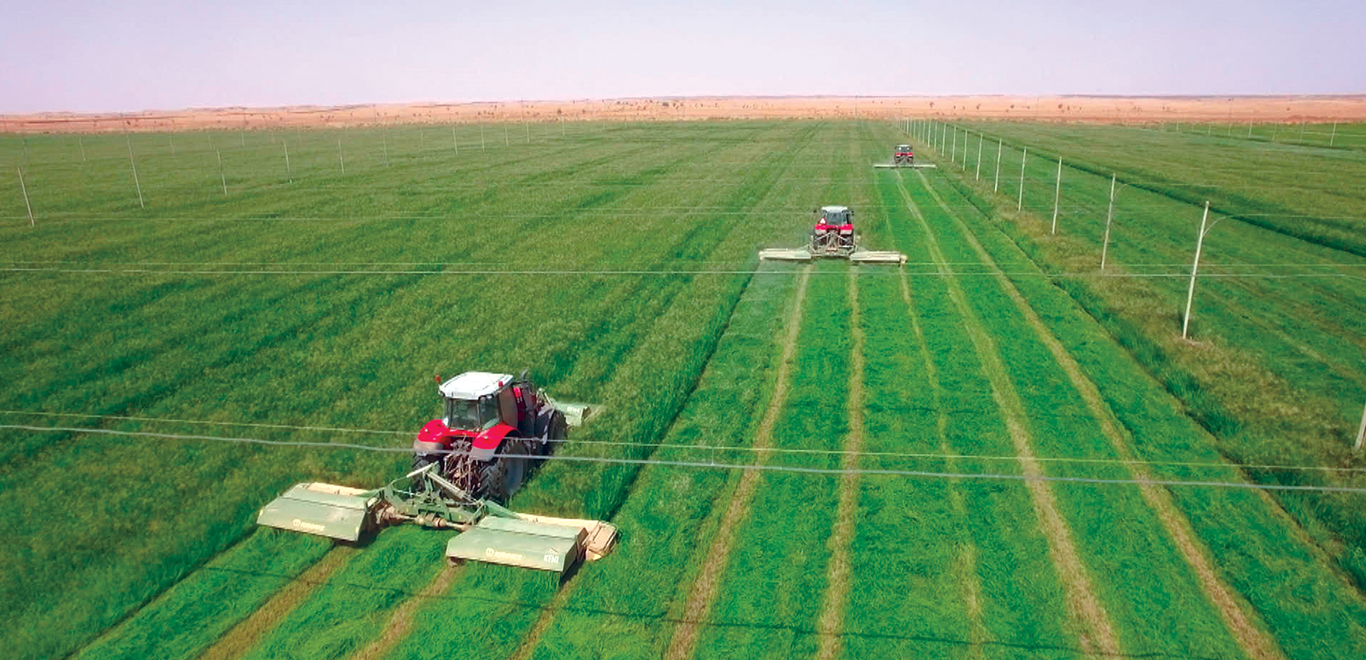Company history
a history of 25 years of progressive feed production Below the whole story of 'start - vision - mission - success - the big stumbling block - the resurrection'
Family business Oomen in West Brabant has its roots from the time when Kees Oomen (50) after graduating from the Agricultural College in 1995 started working at De Landbouw Voorlichting (DLV-Rundvee) as a company information officer, and it soon became clear to him that the entire feed information and ration advice revolved purely around the interests of the animal feed industry. Information about rationing came from a PC pre-programmed by the feed (kibble) company, and was then supplemented with their chunk or soy via their (sales) information. And in consultation with the entire chain of '(Rabo)bank - Feed factory - NRS - Dairy factory and Breeding sector', the (dairy) farmer was directed to get the most out of their (dairy) cattle (to 'squeeze' them). Milk control rankings as a kind of competition element or score in front of the public that hang above the dairy farmer's head, as a motivation to perform. And already at the agricultural school people prefer to teach with the learning materials and lectures sponsored by the same chain. But for whose sake? High yields per cow with high costs. So maximum turnover and margins for the aforementioned chain. And what does the farmer himself have left? Very little and less and less. And so more and more cows per (family) farm... and subsequently problems with (manure) legislation and psychological pressure. Because all the import of minerals through the import of millions of tons of raw materials (soya, grains, ect) per year for the chunks... that has to be returned to HIS land via the same cattle farmer. Or... expensive manure disposal. As a result, more and more rules are being imposed on the livestock farmer. A negative spiral in which (dairy) farmers are involved. And few who see that! Of course Kees Oomen knows that this was instigated by Mansholt after the Second World War. To quickly regain food and prosperity in the Netherlands. But that time is long gone. And now the (dairy) farmers have simply become a pivot (or plaything) of all those mega companies and banks that NEED the farmer as a FLYWHEEL to keep their own business and interests going. And the farmer is the head of jut, with a low income. And that is a huge waste of the beautiful farming profession! Which Kees also really likes. And THAT is exactly what Kees wants to break through in the field of fodder extraction and rationing. Because it can be done so much differently and better for (dairy) farmers. If they dared to let go of "imprinted" habits. And dare to break free from the opinion dictated by the aforementioned chain and industry. But to go for your own balance interests. Not a conventional or organic farmer... but a BALANCE FARMER.
Taking on the challenge in fierce headwinds, with being tackled - falling and getting back up
Kees was unable to work with the rationing programs at DLV. Because he himself always goes to the base of the cow. A cow is a ruminant and should therefore be fed as such. With more than enough rumen energy that feeds the rumen bacteria and rumen papillae to break down the cell walls of the roughage and to produce microbial protein. And then to be able to include this for milk production. And good rumination buffers the rumen and adds enzymes to the fermentation process in the rumen. So that the cow can get the most out of the feed value of the roughage for (milk) production. In addition, a limited share of resistant energy and protein that is used at the abomasum and intestinal level for maintaining your own condition and lactose formation for the liter pressure. And then a dairy cow needs: grass - maize - unstable energy source - incentive - small supplement with real vegetable protein and a small share of sustainable energy. And then a cow can produce optimally and remain healthy and fertile itself. The further overloading of the (dairy) cattle with resistant protein and energy is feeding the cow as a pig. This does result in a higher production.. but the flip side of the coin is (too) high feed costs and high veterinary costs, higher AI costs and a higher mortality rate (and therefore more young stock, more costs and manure). Hello liters - day balance! And in that knowledge, Kees Oomen's statement is: "grass - maize - wheat - MKS and field beans and/or standard peas = everything a dairy cow needs to produce an optimal milk yield, at low costs and with good health and therefore a long Because a dairy cow is most profitable if it has a high lifetime production! That is much more important than a RE, DVE, BSK or any other "invented" number. And a dairy farmer can grow all these feeds himself or in collaboration with Then the arable farmer can sell this feed directly to the dairy farmer (without loss to the middleman) and the farmer can directly transport a required part of the manure to the growing arable farmer. This is better for the entire primary sector. bizarre soy production will stop and Dutch livestock farming will comply with a piece of circular agriculture that Kees started 25 years ago!
The success and then the stumbling block: tackled (too) good results
Kees Oomen started preparing rations based on his recipe (grass - maize - wheat - MKS - brewer's grains - grass seed hay and a small soy supplement since field beans were not available yet). And then on the basis of flat feeding / everything mixed at the feeding fence. With as little additional feeding of kibble as possible... to no more kibble. And it was very successful. The dairy cattle may not always give peak production, but were at least at the same level on average over the lactation! And... the protein and fat levels were much better, with a low Urea number. And the general health and fertility of the couples also improved. All by feeding more on rumen energy and stimuli and using maximum roughage. The intake of silage and silage maize did increase by at least 2 to 3 kg of dry matter per cow per day. So more milk from roughage. And sharply decreasing concentrate costs and healthier livestock. So a higher balance for the dairy farmer. But the system was not appreciated by everyone in the entrenched opinions and habits within DLV, which had quite a good relationship with many compound feed companies and the banks. Which are production and sales driven. If you just look at BSK and milk control lists make that "sector blindness". In the meantime Kees was already busy with the cultivation (supervision) of MKS in 1999 - 2000 (MaisKolvenSchroot), its brokering, arranging the harvest via/by contracting company R. de Regt (Etten-Leur) and making rations with this. MKS has already replaced a lot of chunks. But that did not fit well with DLV's ration programs and way of thinking. That is why Kees said goodbye to DLV Cattle in 2001, after almost 6 years of service. And started the company FarmsBest Holland Int. with an intern and former colleague (Rens Kuijten). vof in Sterksel and Etten-Leur. And together with this colleague, Kees took on the challenge of cultivating and researching better concentrate crops. And so, in 2004, in collaboration with Marcel van Doorne from Cebeco Zaden, a large trial field of up to 6.5 hectares was created at Kees's home. Where we had (mixed) crops of, among others: Field beans, field beans-wheat, lupins, rapeseed, peas-barley, sunflowers-maize and quinoa. Hundreds of people from the sector attended the "field days" on these test fields. Excursions were also received from agricultural schools in the Netherlands and Flanders. Excursions and study clubs also went to our client livestock farmers where we had crops, such as at Fam. Buijs in Etten-Leur and with the Kuijten family in Sterksel. Where we also tested the rations with various crops, and constantly supervised the rations. BAKERMAT, from 2000 to 2004 the nursery of many current (protein) crops! We were as FarmsBest Holland Int. the cradle of concentrate crops and associated rationing. We are, among others, the pioneers and inventors of the mixed crops: "pea-barley", "field beans-wheat" and "pea-grass". The following unique products are also an invention of Kees Oomen: WheatBostel, MaïsMix and MaïsKernPulp. on which Kees assesses and rationalizes a ration on the basis of 'cow-feed-manure signals' is unique. In 2006 Kees and his partner parted ways. And Kees continues under the name AgriLogica. And due to the sometimes difficult cooperation with a number of contractors from the region (due to often misunderstandings and sensitive matters such as mutual favor and envy between contractors), Kees decides to mechanize the company more himself. What seemed a good plan at the time to get rid of a lot of nagging to be. but in hindsight was not so wise. In retrospect, Kees should have just continued to work 100% with contracting company R. de Regt. With which there was a good collaboration and Kees had been 'at home' for life until 2011 from a young age. But yes, that is now "looking the bull in the ass". At the time, we therefore started to carry out more mechanized cultivation and contract work ourselves. Focused on the cultivation - harvest - storage and rationing of the ideal concentrate crops. Plus feed forage. AgriLogica was on the one hand an arable farm that at its peak had more than 600 hectares of cultivation on leased land in West Brabant, Zeeland, Hoekse Waard, West Gelderland and in 2010-2011 also in Germany (Nordrhein Westfalen). And in addition, hundreds of hectares under cultivation contract. what farmers did themselves. And furthermore, the guidance and care of the crops and harvests at the livestock farmers who did the cultivation themselves. On the other hand, AgriLogica was the specialized advisory company for (dairy) farmers. And to make the rations more perfect, with the products that Kees was close to, the company also started supplying its own feed mixtures from 2006 that were very successful: TarweBostel, MaisMix, and MaïskernPulp. All based on harvest products directly from arable farming or own cultivation. Beer grain or pressed pulp was the ideal tasty and healthy conservator. With all this, Kees Oomen and his employees were very successful and kept busy up to and including 2010. So much so that the company BEUKER wanted to cooperate with AgriLogica. And BEUKER also started selling these feed mixtures to their customers throughout the Netherlands and Flanders. And the Zijderlaan trucks came to collect their products from AgriLogica on behalf of Beuker. Achilles heel, the stumbling block resulting in a serious fall : Since 2005, Oomen & Kuijten have linked a cooperation system between the arable farming sector and the (dairy) livestock sector to this feed and ration system. One grows (concentrate) feed and the other uses manure for this purpose. In short: a closed loop system (already in 2005!). From 2005 to 2009 this became an increasingly large number of arable farmers and (dairy) farmers who took part in this. In 2009 this was already 94 livestock farmers and no fewer than 63 arable farmers spread over West Brabant, South Holland, Zeeland, Hoekse Waard and even in West Germany. And the grain trade also started to notice that ... and that also started to notice another sector : pig farming. And in retrospect that was not a very good idea, to also use this system for pig farming. Because this then went through the compound feed supplier of the pig farmer, who would then receive the grain maize and/or wheat. To briefly summarize a very complicated and long story: In the eyes of Kees/AgriLogica, excellent "triangle agreements" had been established between 'pig farmer - compound feed supplier and AgriLogica'. But when the weather and the impact of the American Financial Crisis (which started in 2008 and also hit Europe in 2010) got a grip on the grain market in 2011 ... and the agreements made were impossible to keep ... the triangle apart... and AgriLogca (and thus Kees) became the head of jut. At the same time, some pig farmers also tried to make a profit out of the situation that had arisen by not paying for threshed wheat (AgriLogica would die anyway... was the statement), even selling wheat in the name of AgriLogica in the port without permission. van Sas van Gent loaded to unload at home in the silo... (so simple stealing). And so a self-sustaining destruction process was set in motion… a bad movie set in a month. And during this malaise we could not even have our own wheat delivered dry to the compound feed manufacturers because it rained continuously in 2011, as in the summer of 2021. And a lot of extra drying costs were the result. To solve this problem together ... there were no ears for that. And the wheat trade came to a standstill. Parallel to this misery of the past was the fact that too little slurry could be used for arable farming, because of the wet fields. Despite the additional Terra-Gators purchased. That is why Kees came up with a new plan: mixing the slurry 1:1 with sieve sand from the composting and mushroom manure. It was free and unlimited at the time. And Kees called it HUMEST. And Kees went to the Ministry of LNV in Assen for approval. And HUMEST was officially approved as SOLID MANURE. And the big advantages of this were that it could be stored for a longer period of time (until the weather was dry enough in the fields). And that solid manure could be spread on frost in winter. An approval procedure was also underway in West Germany . That after 4 weeks of composting the HuMest, this manure was freely exportable to arable farmers in Germany. Where there was a lot of demand for HuMest. And paid for it too. And that is why Kees wanted to start with a HuMest production location in North Limburg. And Kees went on to explain all this to the pig farmers once again in October 2011, during 2 meetings in a cafe. But... they didn't believe it. And gave up the trust. Fueled by also false gossip from the sector of jealous, envious and also competitive people and companies. From our own home region and in North Limburg. Who thereby destroyed the good and beautiful work of AgriLogica. Despite all the good intentions of Kees. And Kees had no choice but to stop the company to protect his own family and employees. So that was by no means a free choice. Kees' entire life's work was lost as a result. And Kees was and is devastated that many others were victims of this, who also became victims. And then there was also a real 'Karktermoord' on Kees via the "social" media. Which totally missed the mark. Kees had and has nothing but the best intentions for the sector. And for everyone involved. No one has been deliberately harmed, nothing has been pushed back. Kees was left with nothing in 2011 of everything he had built up. All he was left with was to protect his employees and family. And that was completely misinterpreted by the media and people. Not knowing what had really happened. In one fell swoop everything that Kees had brought good for the (cattle) sector was blown away by incorrect reporting, false gossip and juicy stories. And with that, an innovative force stopped, especially for this sector. A huge shame. And few who did want to hear the right story. Most took part in the character assassination with the large group. But in retrospect we all know how it should have been. And also know what we now know for sure: Pig farming was the Achilles heel. Shoemaker stick to your reading: de rundveehouderij.Eigen mistakes: Despite the fact that Kees had nothing but good in mind with his work as AgriLogica, he is certainly also aware of what he himself did wrong at the time. And admits this openly, and has offered many sincere apologies for this in the past in the period 2011 - 2012. Kees: "My biggest mistake is that I had taken too much on my fork". And I got carried away with the compound feed industry and the pig farmers who wanted to conclude more and more feed-manure sales contracts. People should bear in mind that this feed industry really wanted to work with Kees, precisely because Kees had been so successful with his feed-manure system in the period 2005 - 2010! And this industry does check in advance whether Kees' companies were financially healthy and whether Kees can be trusted as a partner. Otherwise these major corporate powers would not have teamed up with Kees in 2011. And then no one can say with a dry eye that Kees suddenly changed in 9 months in terms of approach - good intentions and character so that he would consciously bottle the business! Despite the fact that afterwards it was said that Kees had agreed on things that were not possible.... it was indeed possible. But Kees had not taken into account the extreme rise in the wheat price and the extreme wet weather. Which made everything so complicated and difficult that Kees with his small hard-working team of employees could no longer work it normally. And Kees lost the overview. The pressure became (too) high, resulting in sleepless nights and overstrain. And despite the good will and opportunities that Kees had found with HuMest and with grain traders in Zeeuws Vlaanderen and Germany... it was still too difficult. And the trust went away on horseback... And the "three-corner" contracts should also have been examined by Kees by a lawyer and others. Kees had made them himself, but were insufficiently provided with clauses and agreements if there were extreme price fluctuations in the market and/or unforeseen weather conditions and thus delivery problems. Kees had not included all that in these contracts, which he certainly should have. That was also a big mistake that Kees now realizes afterwards. He should not have made these contracts alone or himself. My mistake was: wanting to do too much too well. Arrange everything yourself. And then get stuck due to unforeseen circumstances. But I never, ever wanted to harm anyone. It was always with the best intentions! Even now !But : AgriLogica may have stopped in November 2011. But Kees Oomen's ideas and (power) feed cultivation and ration system are still very much alive! And very, very topical. The funny thing is that now compound feed companies such as ForFarmers and AgriFirm are starting to talk about the cultivation of field beans and the like, as if that were something completely new. We have known for a long time how this works and how it can be used successfully. We already did it! And we know that much more is possible than these companies think they know. Every dairy farmer can do without chunks! Every dairy farmer can achieve a higher balance!The road after 2011, towards the current "Oomen Dairy Engineering":After the termination of AgriLogica, Kees started working at KLM-Martinair Cargo in 2012 as a distribution manager for agricultural mechanization and parts that went by air. This resulted in contact with various agricultural mechanization manufacturers in the Netherlands and Germany. And from this work, Kees started in the period 2013 - 2015 as an agro-engineer for AGCO (Fendt), Schuitemaker, Lemken, Krone, Fliegl and John Deere. For various agro-projects in Southeastern Europe, Russia, Middle East and Africa. And the agricultural experience and knowledge came to the fore again. For many different agricultural projects, Kees is deployed in a local team for his knowledge of agriculture, cattle farming and at the same time his experience and knowledge of agricultural mechanization. And so Kees became a kind of "oil man" for various agricultural projects. From this work, Kees founded "the Mechan-Connect Group BV" in collaboration with these brands. This company has now been in existence for 6 years in 2021 and now has 3 subsidiaries at various locations: - MC AgroTech - Oomen Dairy Engineering - CTR T-Driver's License CTR T-Driver's License Through a good collaboration with John Deere in Mannheim and through the collaboration and friendship with Jan de Winkel (John Deere distributor in the east of the Netherlands) Kees also founded the CTR T-Driver's License in 2015. Following a request from the CBR and the Ministry of Transport, Kees had already joined the technical committee on behalf of John Deere in 2013 for the development of the T-Driver's License in the Netherlands. Since 2015, Kees has set up CTR T-Driver's License from this work, and has started to provide the T-training from Goor. Together with his internship (BBL) employee Ruud Hoeijmakers. And then also together with BBL member Rik Harenberg in Baak in the Achterhoek. And since 2018 also with Mark Harenberg. And since 2020 also from home in Etten-Leur / Rijsbergen. (see webpage CTR T-Driver's License)Forage harvesting and rationing has never really come to a standstill: And with Mechan-Connect and now Oomen Dairy Engineering, Kees has guided many (dairy) cattle farms in Europe, Russia, the Middle East and Africa in the past 6 years. for fodder production and rationing. For various projects, but also for dairy farmers themselves. MKS, field beans (wheat), peas-barley and grass-clover are grown on many hectares in Eastern Europe, Russia and Africa. But in the past 2012 - 2021 period Kees has also still supervised the fodder extraction (and concentrate crops) and rationing at ten (dairy) farmers in the Netherlands and Flanders. New generation at work: Now Kees' sons, Kevin Oomen (20) and Rick Oomen (19) are also emerging professionals. Both of whom have completed their training in agro-mechanisation, and also work in it. But who also help Pa with the work for Oomen Dairy Engineering in addition to their beloved work at LMB Oomen in Sprundel, Ploeger in Roosendaal and at Basrijs. And also get a lot of knowledge from their father about fodder harvesting and rationing. In addition, there is a nice team of young colleagues trained by Kees, based on previous internships. From which in particular Rik Harenberg (21) and Mark Harenberg (18) emerged as permanent employees. Rik Harenberg now runs the company in the Achterhoek independently. And in addition, we have a nice team of casual workers (from the age of 16 to 62) who help us with our work in the Netherlands and Flanders. But also in our projects in other parts of the world. And so Kees has picked up again after ending AgriLogica, and still stands firm for his vision. And has built up a lot in the past 10 years and has a powerful team around it nationally and internationally. With many good partnerships abroad, including John Deere, Lemken, Krone and Fliegl. And Kees is open to anyone who wants to use his enormous knowledge and experience in the field of (strength) feed extraction and rationing. And the young generation can also supply the necessary technology. Kees is also always available for people in or outside the agricultural sector who themselves also get stuck in business (for whatever reason). To share his experience and perhaps help these people. And we have now started our 'COMEBACK' in the Netherlands and Flanders at the beginning of and before everything: THE SOIL !
